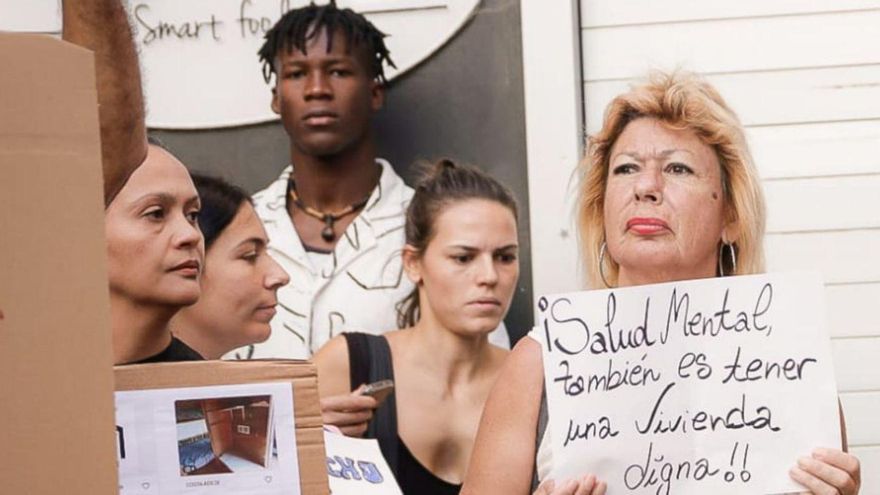
Increasingly, women are compelled to endure homelessness on the streets of Tenerife. This alarming situation has been brought to light by Cáritas Diocesana, a charitable organisation that highlights in a poignant report the “notable rise in the number of women facing extreme residential exclusion over the past four years.” According to the Women and Homelessness study, this year the organisation provided support to a total of 637 homeless women on the Island, constituting 27.6% of the overall figure (2,308).
The analysis conducted by the Catholic organisation underscores the “chronification” of this issue, as homeless women frequently experience double discrimination, based on their gender and their lack of shelter. “This may involve denial of essential services, inadequate access to safe shelters from gender-based violence, mental health or addiction problems, and a lack of sufficient support to escape homelessness,” Cáritas specifies.
60% of these women have encountered gender-based violence or other forms of sexual violence (including assaults and propositions) or physical violence (such as insults, humiliation, thefts, and assaults). Additionally, women are diagnosed with anxiety and chronic depression at twice the rate of men. Factors such as age, origin, and administrative status, inclusive of disabilities, exacerbate their risk of exclusion, the report indicates.
Cáritas Diocesana de Tenerife stresses that “the profile of exclusion in the Canary Islands predominantly comprises women” and is typified by “a condition of severe poverty.” This is further illustrated in the latest Foessa report, published in 2022, which reveals that over 320,000 individuals in the Archipelago are experiencing exclusion, equalling 14.8% of the total Canarian population.
The research, which was compiled from data gathered by the technical teams of the Mobile Street Care Units for the homeless (UMAC) project, also notes that only 20% of the women assisted report having had a stable childhood and adolescence. An additional 20% endure conditions of extreme social exclusion, while the remaining 60% have experienced severe social exclusion from childhood.
From a young age, all women supported by Cáritas have entered into a state of severe social exclusion, lost their support networks, and began experiencing gender violence in their relationships, in every case. Moreover, 70% come from backgrounds of domestic violence since childhood and have witnessed sexist violence against their mothers, whilst another 20% experienced parental abandonment. Alarmingly, 30% of these cases claim to have suffered sexual abuse in their childhoods, either by family members or individuals outside the family unit.
Cáritas’ analysis characterises the situation confronting these homeless women as a “unique problem” and contends that “it necessitates a differentiated approach.” “These disparities not only relate to economic and social barriers, but also to the various forms of gender violence and discrimination that disproportionately impact women,” it clarifies.
The convergence of gender and homelessness indicates, as per Cáritas, “how societal roles and cultural expectations sustain dynamics of vulnerability.” The concerning report highlights that many women who face homelessness have been victims of domestic violence, sexual abuse, or employment inequalities, “which worsen their circumstances and restrict their opportunities to escape this cycle of exclusion.” Furthermore, it expresses concern about “the invisibility of women on the streets,” as survival strategies such as hiding to evade danger complicate the creation of inclusive and effective public policies for the most marginalised.
There is another aspect affecting both homeless women and men in Tenerife equally: three out of four individuals have experienced insults or societal rejection, “an attitude that leads to their dehumanisation and reinforces their isolation.” This form of discrimination is also evident in the denial of fundamental services like registration, healthcare, and access to rental housing.
Cáritas is deeply troubled by the chronic health issues particularly affecting homeless women on the Island. As indicated in the report released yesterday, women are twice as likely to suffer from mental health-related illnesses as men (including chronic anxiety, chronic depression, and serious mental disorders).
The report concludes by stressing that “women in severe residential exclusion are denied their citizenship rights and face deprivation of many of their essential rights.” Consequently, Cáritas advocates for “genuine public policies to facilitate access to decent housing, giving priority to the most vulnerable groups.”















